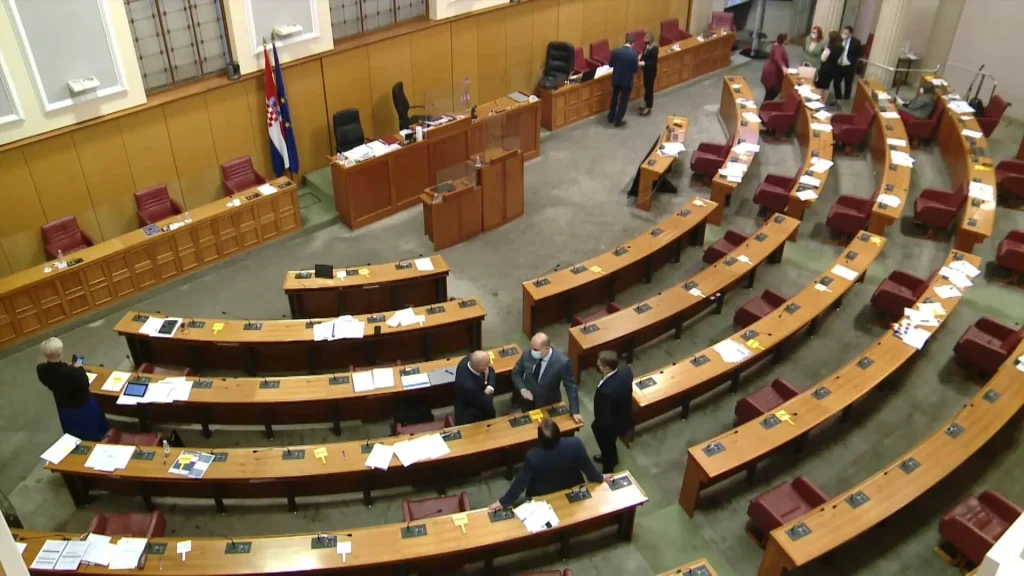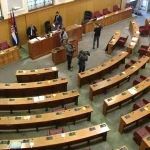“The key problem with the DKOM is that its name does not befit it. It does not supervise public procurement procedures but only resolves appeals in those procedures,” DP MP Daniel Spajić said during a debate on the commission’s work in 2019.
He claims that many evidently corrupt procedures, like the one for the digitisation of the health system, were not appealed against and are therefore not handled by the DKOM.
Spajić claims that Croatia is one of the most corrupt countries in the world.
That would not be possible if we had a proper public procurement procedure, he says.
While other caucuses commended the DKOM’s work and its report, MP Bojan Glavašević of the Green-Left Bloc (ZLB) said the report was a technical document without any data on effects. There is little information regarding the DKOM’s anti-corruption activities and there is not one conclusion, description of activities, or recommendation, he said.
MP Marija Selak Raspudić (MOST Party) commended the report, adding that further improvement is possible.
A fundamental improvement would be to see how much state administration bodies had to pay appellants due to poorly conducted public procurement procedures, she said.
We also want a black list of public administration bodies which have made the most errors in absorbing EU funds and we want to know who the professional appellants are, Selak Raspudić said.
MP Rada Borić (ZLB) warned of the large number of procedures with just one bidder, saying this was the greatest corruption risk.
Social Democratic Party (SDP) MP Željko Pavić referred to the detail that there was an increasing number of appeals to documentation on public procurement and asked whether that problem could be resolved if there was a special department at the DKOM in charge of checking documents.
MPs from the ruling Croatian Democratic Union (HDZ) praised the document. MP Branka Juričev Martinčev (HDZ) was pleased with the increased number of projects using EU funds and that the DKOM had handled these procedures well.
Systematic training necessary
Most lawmakers agreed that systematic training is necessary for participants in public procurement procedures to avoid errors.
In 2019 the DKOM had 1,365 appeals, including 1,209 new ones, which is a mild increase compared to 2018.
The majority of appeals referred to the selection phase (66%), however, there was a growing trend in the number of appeals related to procurement documents (32%), which can largely be attributed to a single fee to launch an appeal of HRK 5,000, regardless of the value of the procurement.
The DKOM’s decisions can be disputed before the High Administrative Court and in 2019 that court quashed less than 3% of the DKOM’s decisions.
For more about politics in Croatia, follow TCN’s dedicated page.











